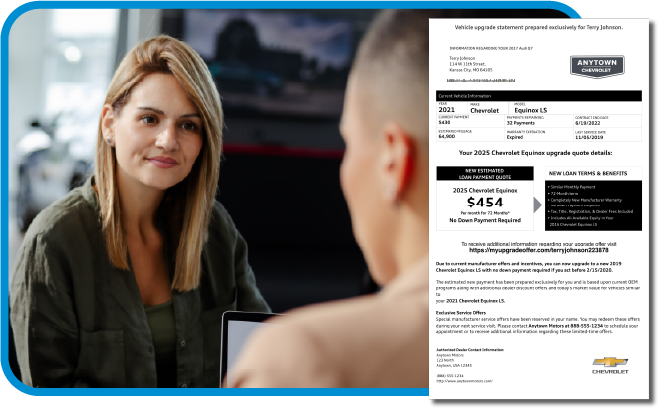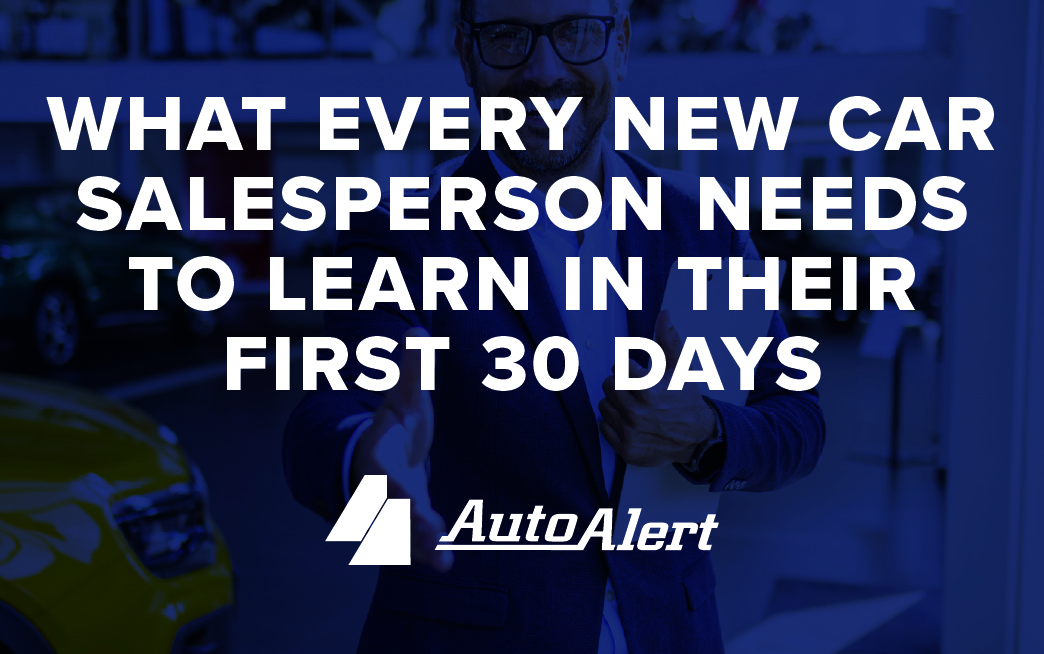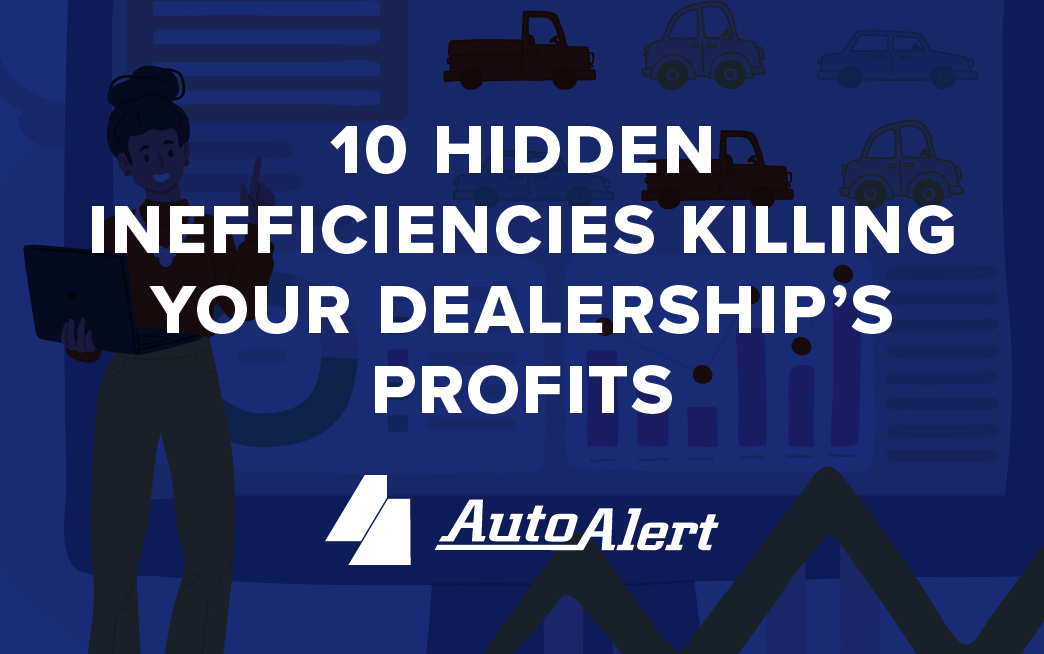THE ROLE OF A CRM IN SERVICE DEPARTMENT RETENTION
A CRM is for more than just the sales team. Learn how a CRM enhances service department retention, boosts customer loyalty, and maximizes service revenue.
Maintaining a high level of customer retention is critical to long-term success, particularly for a dealership service department. Dozens of customers come through the service drive daily, and lucrative sales opportunities are missed. One of the most effective tools for securing these sales is a CRM that supports the service department.
While CRMs are often thought of as tools primarily for sales, their role in the service department is equally, if not more, important in ensuring a positive customer experience and customer retention.
The Best Data + A Comprehensive CRM Makes the Dealership Go-Round
A powerful data mining tool is a great advantage to service department sales strategies, but it’s also critical to know who the right person is to speak with the customer and what kind of conversation to have.
A proactive CRM is necessary to alert dealership staff when customers arrive in service and provide relevant talking points to which the customer is likely to respond. A successful CRM will set into motion a set of proven processes that equip staff to present the right customers with the right personalized deal at the right moment.
When your dealership CRM is linked to a Service Lead Management tool, you will have inside information on customers with upcoming service appointments, know what vehicles they are driving, and the available incentives. You are then prepared to present appealing upgrade opportunities. Knowing as much as you can about your customers before they arrive puts you in a position to provide better service and increase sales.


Additionally, powerful CRM analytics provide the information service departments need to predict when a customer is a candidate for services and upgrades based on previous data. This allows for more targeted marketing campaigns and reduces the marketing spend to attract new buyers to the dealership – leading to an overall higher ROI.
These anticipatory strategies make the customer’s life easier and demonstrate that the dealership is actively thinking ahead to meet their needs.
Real-Time Processes Lead to Long-Term Relationships
Real-time notifications pull data and alert the identified representative with pertinent information on the customer, including when they should head to the service drive, who to speak with, and exactly what to say. Service customers may not be thinking about making a new car purchase, but once they find out they are in a position to upgrade and can drive away in a newer vehicle at a similar or even lower payment, they become interested pretty quickly.
Offering this to customers provides the dealership with a great opportunity to make a sale today and build long-term relationships.
Turn your service drive into a hub that consumers seek after. Let your customers know you’re not just a place for oil changes and tire rotations but rather a place where your entire staff works to build relationships, offer reliable advice, and present the best individualized solutions. Today’s busy consumers prioritize efficiency, accuracy, and superior product knowledge.
Here are some actions you can expect to take once you upgrade to an all-inclusive Dealership CRM that unifies your whole dealership.
Alerting customers when they can upgrade. Be the first to let customers know when they’re in a position to upgrade, point out the benefits, and be available every step. Leverage the information in your database to present individualized offers right in the service drive. Alerts that can benefit you and your customers include:
- Your customer is showing a mileage penalty on their current lease.
- Your customer’s warranty is about to expire.
- When exactly they are eligible to trade and lower their payments.
A proactive CRM can also suggest additional services, such as brake inspections or alignment checks, enhancing customer satisfaction and revenue.
Personalizing customer communication. CRM systems enable dealerships to stay in touch with customers by providing detailed insights into service history, preferences, and individual needs. This allows for personalized communication, such as service reminders, special offers, and recalls or recommended maintenance updates. Service departments can make customers feel valued and understood by offering tailored communication rather than generic messages, increasing the likelihood of repeat visits.
Sending appointment reminders. Today’s customers are busy, and a simple way to modernize your service is by sending reminders via email, text, or social media. By reminding customers you’re looking forward to seeing them, you’ll cut down on forgotten appointments and let them know their business is important to you.
Offering deals on services and products. Let your loyal customers know some perks continue after their initial purchases. Offer free car washes, maintenance packages, and more to ensure they keep coming back. By staying in the picture for maintenance needs, you’re more likely to be their choice when buying again.
Streamline service appointment scheduling. Many CRM platforms offer online scheduling options, making it easy for customers to book service appointments at their convenience. This ease of use is a big win for customer satisfaction. When customers have a hassle-free experience in setting up and managing their service visits, it increases the likelihood that they will return. Moreover, CRM systems can integrate with scheduling software to ensure no appointment is overlooked, reducing wait times and improving overall service efficiency.
Tracking customer feedback and satisfaction. Post-service follow-up is a key aspect of customer retention, and CRM systems are invaluable. By automating follow-up surveys and feedback requests, dealerships can quickly identify areas for improvement. Addressing negative feedback promptly ensures that the customer feels heard and appreciated, increasing the chances of future visits. Moreover, tracking customer satisfaction over time provides valuable insights for continuous improvement in the service drive.
Building long-term relationships. A well-implemented CRM system tracks every interaction between the dealership and the customer, from the first sale to every subsequent service. With this comprehensive data, service advisors can engage with customers on a deeper level, referencing past repairs or services and even predicting future needs. Building this type of long-term relationship fosters loyalty, as customers feel they are in good hands with a team that knows and understands their customer lifecycle.
A CRM system is central to keeping customers engaged with personalized communication and a seamless service experience. Leveraging the full potential of CRM technology to present the best offer at the right time adds value to the customer experience and equates to increased loyalty over time.
Dealers with the tools and processes to recognize and convert service customers have opportunities for profit-generating sales and increased consumer loyalty. Are you reaching out to the buyers in your service department who can upgrade to a new vehicle? AutoAlert’s fully loaded CRM, AutoAlert CXM, delivers the best possible service drive experience your customers didn’t even know they wanted.



